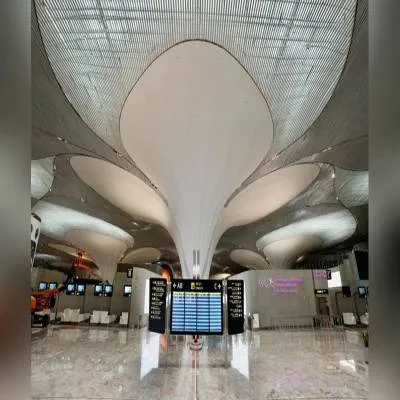Schedule a Call Back
Parliament passes landmark Major Port Authorities Bill, 2020
 The Parliament has passed the Major Port Authorities Act, 2021. The bill was moved by Mansukh Mandaviya, Minister of State (Independent Charge) for Ports, Shipping & Waterways in Rajya Sabha on Wednesday and it was passed. Now the bill will go to the President of India for his assent.
The Parliament has passed the Major Port Authorities Act, 2021. The bill was moved by Mansukh Mandaviya, Minister of State (Independent Charge) for Ports, Shipping & Waterways in Rajya Sabha on Wednesday and it was passed. Now the bill will go to the President of India for his assent.
The Major Port Authorities Bill, 2020, aims at decentralising decision making and infusing professionalism in the governance of major ports. It imparts faster and transparent decision-making to benefit stakeholders and improve project execution capability.
The bill is aimed at reorienting the governance model in central ports to the landlord port model in line with the successful global practice. This will also help in bringing transparency to the operations of 13 major ports. This will empower the major ports to perform with greater efficiency on account of full autonomy in decision making and by modernising the institutional framework at major ports.
Salient Features of the Bill
The bill is more compact in comparison to the Major Port Trusts Act, 1963, as the number of sections has been reduced to 76 from 134 by eliminating overlapping and obsolete sections. The new bill has proposed a simplified composition of the board of port authority, which will comprise 11 to 13 members from the present 17 to 19 members, representing various interests. A compact board with professional independent members will strengthen decision making and strategic planning.
Provision has been made for the inclusion of representatives of the state government in which the major port is situated, Ministry of Railways, Ministry of Defence and Customs, Department of Revenue as members in the board apart from a Central Government nominee member and a member representing the employees of the major port authority.
The role of the Tariff Authority for Major Ports (TAMP) has been redefined. The port authority has now been given powers to fix tariffs, which will act as a reference tariff for purposes of bidding for public- private partnership (PPP) projects. PPP operators will be free to fix tariffs based on market conditions. The board of port authority has been delegated the power to fix the scale of rates for other port services and assets including land.
An adjudicatory board has been proposed to be created to carry out the residual function of the erstwhile TAMP for major ports, to look into disputes between ports and PPP concessionaires, to review stressed PPP projects and suggest measures to revive such projects and to look into complaints regarding services rendered by the ports or private operators operating within the ports.
The boards of port authority have been delegated full powers to enter into contracts, planning and development, fixing of tariff except in national interest, security and emergency arising out of inaction and default. In the present MPT Act, 1963, prior approval of the Central Government was required in 22 instances.
The board of each major port shall be entitled to create a specific master plan in respect of any development or infrastructure.
Provisions of corporate social responsibility (CSR) and development of infrastructure by port authority have been introduced. Provision has been made for safeguarding the pay and allowances and service conditions including pensionary benefits of the employees of major ports.


Subscribe Now
Subscribe to our Newsletter & Stay updated
RECENT POSTS
Popular Tags
Folliow us











